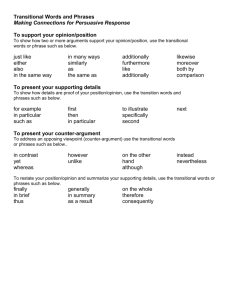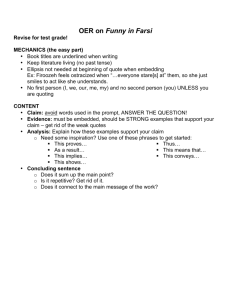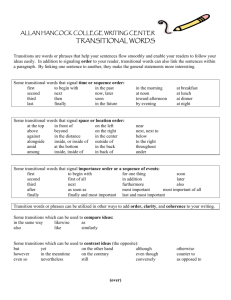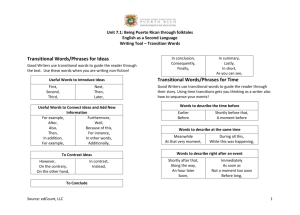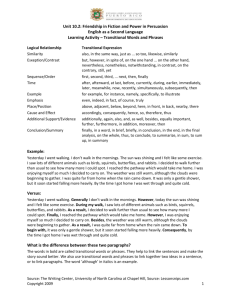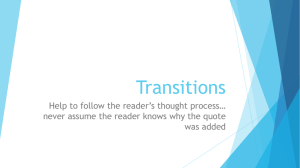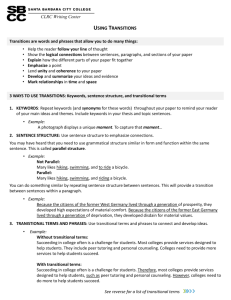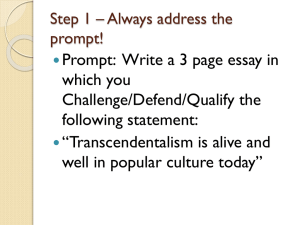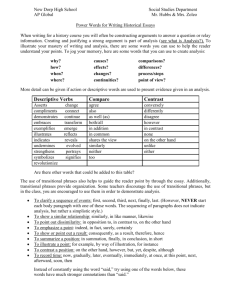Transitions
advertisement
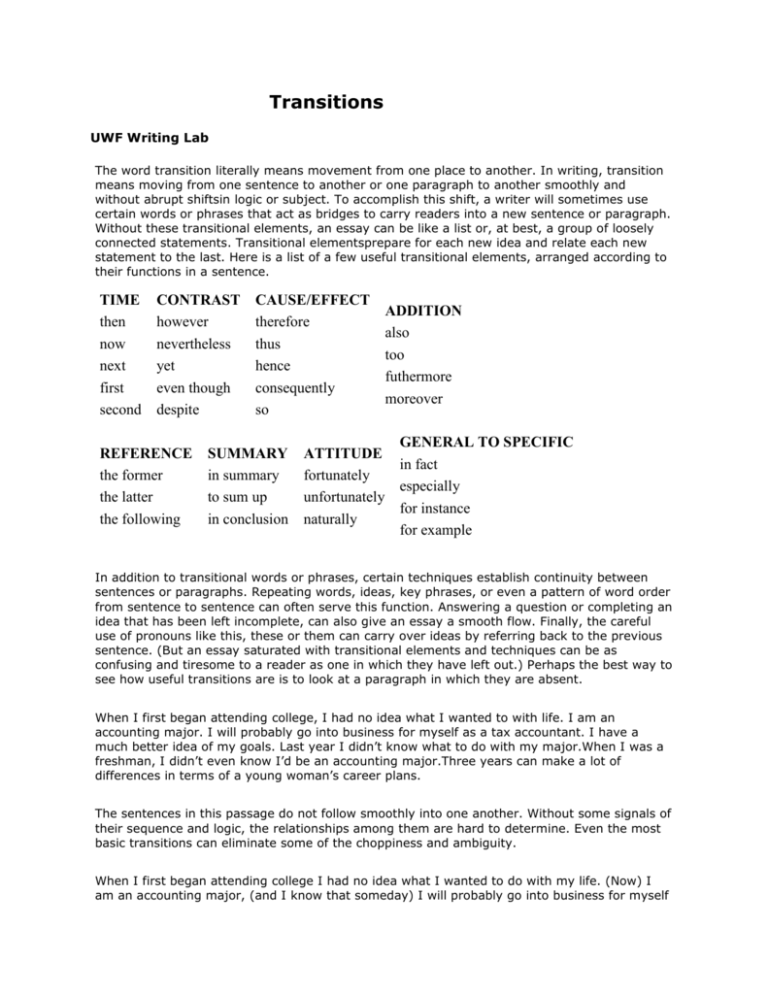
Transitions UWF Writing Lab The word transition literally means movement from one place to another. In writing, transition means moving from one sentence to another or one paragraph to another smoothly and without abrupt shiftsin logic or subject. To accomplish this shift, a writer will sometimes use certain words or phrases that act as bridges to carry readers into a new sentence or paragraph. Without these transitional elements, an essay can be like a list or, at best, a group of loosely connected statements. Transitional elementsprepare for each new idea and relate each new statement to the last. Here is a list of a few useful transitional elements, arranged according to their functions in a sentence. TIME then now next first second CONTRAST however nevertheless yet even though despite REFERENCE the former the latter the following CAUSE/EFFECT therefore thus hence consequently so SUMMARY in summary to sum up in conclusion ADDITION also too futhermore moreover GENERAL TO SPECIFIC ATTITUDE in fact fortunately especially unfortunately for instance naturally for example In addition to transitional words or phrases, certain techniques establish continuity between sentences or paragraphs. Repeating words, ideas, key phrases, or even a pattern of word order from sentence to sentence can often serve this function. Answering a question or completing an idea that has been left incomplete, can also give an essay a smooth flow. Finally, the careful use of pronouns like this, these or them can carry over ideas by referring back to the previous sentence. (But an essay saturated with transitional elements and techniques can be as confusing and tiresome to a reader as one in which they have left out.) Perhaps the best way to see how useful transitions are is to look at a paragraph in which they are absent. When I first began attending college, I had no idea what I wanted to with life. I am an accounting major. I will probably go into business for myself as a tax accountant. I have a much better idea of my goals. Last year I didn’t know what to do with my major.When I was a freshman, I didn’t even know I’d be an accounting major.Three years can make a lot of differences in terms of a young woman’s career plans. The sentences in this passage do not follow smoothly into one another. Without some signals of their sequence and logic, the relationships among them are hard to determine. Even the most basic transitions can eliminate some of the choppiness and ambiguity. When I first began attending college I had no idea what I wanted to do with my life. (Now) I am an accounting major, (and I know that someday) I will probably go into business for myself as a tax accountant. (At the present time, then,) I have a much better idea of my goals.Last year, (however,) I didn’t even know that I’d be an accounting major. (This shows that) three years can (certainly) make a lot of difference in terms of a young woman’s career plans. (and I know that someday) I will probably go into business for myself as a tax accountant. (At the present time, then,) I have a much better idea of my goals. Last year, (however,) I didn’t even know that I’d be an accounting major. (This shows that) three years can (certainly) make a lot of difference in terms of a young woman’s career plans.


